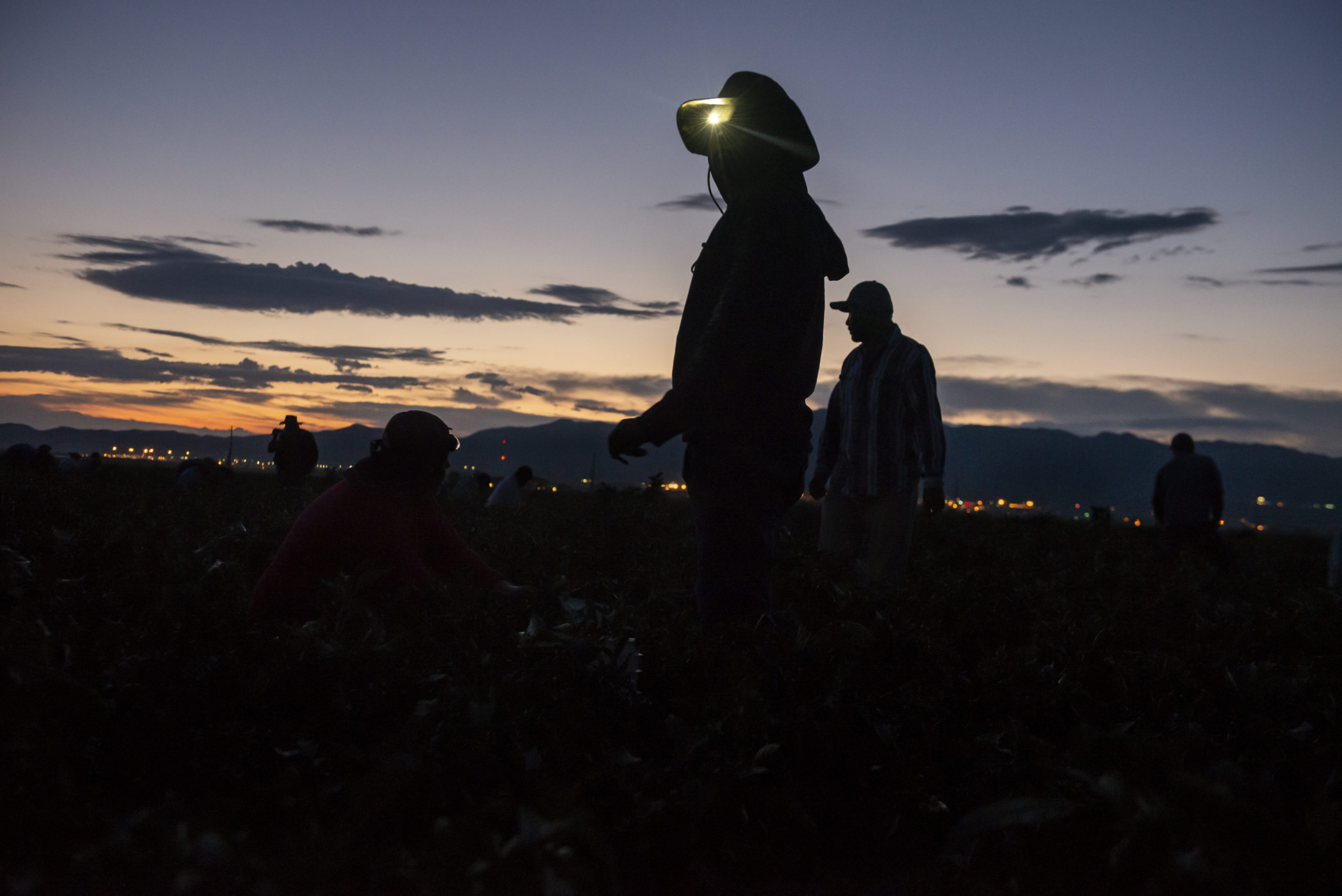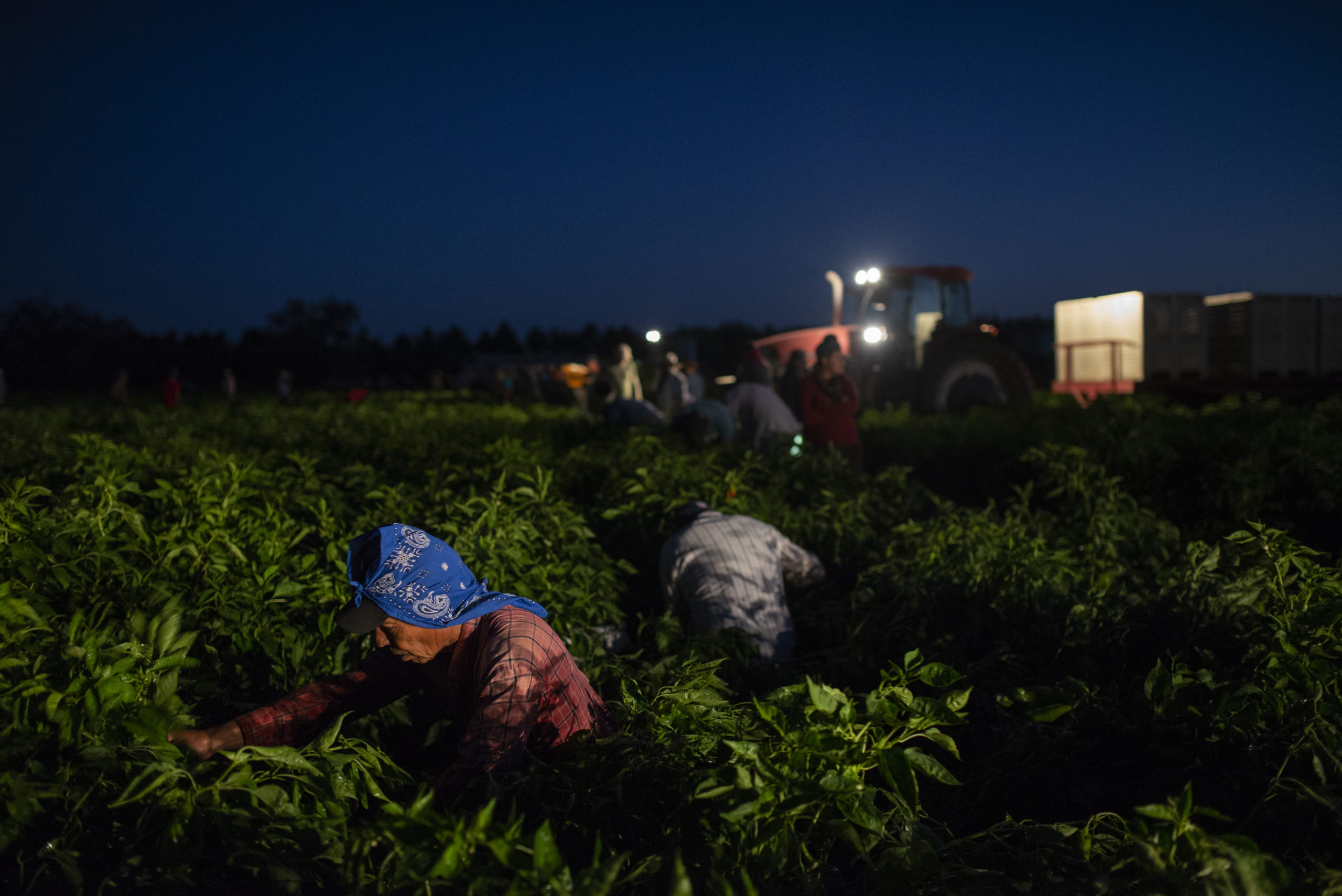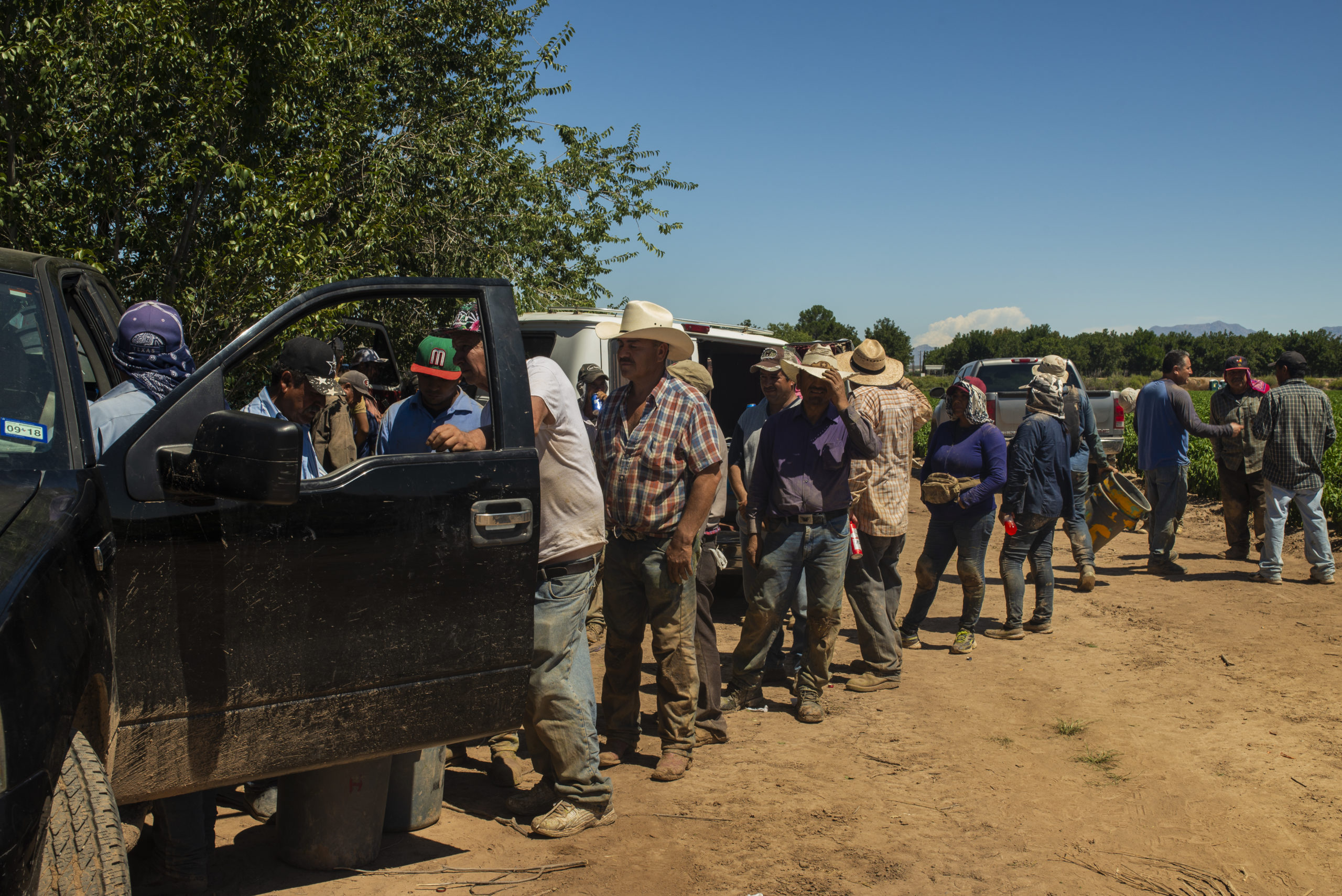The U.S. fields are mainly nourished by Mexican farm workers who, along with the farmers they work for, are the motor of the primary sector in this country. At least half of these migrant farm workers do their jobs without work permits.
It is 3:00 A.M. in any giving day in August in El Paso, TX. The street corners in Downtown are full with farm workers, contractors and foremen. In every corner, a group of farm workers wait for a van or ranch busses to take them to the fields in where they will pick up chili during the whole workday. A long day of work and hard-working conditions await them. Their salary, which varies between 60 and 100 dollars a day, will depend on the pace they maintain to fill up the buckets with chili and the quality of the harvest.
The time they have left after work and the energy is only enough to come back home, take a shower, and have some sleep because they must wake up the next day at 2:00 A.M.
This migration phenomenon and the farm workers displacement is not exclusive from the U.S. southern border. There is an international labor flow that has come to add to that of products and capitals.
The human rights protection of these workers, as well as a legal framework that guarantee decent working conditions and living wages demonstrate the democratic level of the host country and, undoubtedly, favor social cohesion, since they contribute to eradicating inequality and discrimination.



















